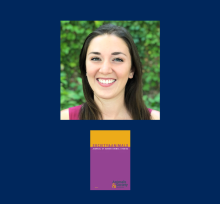
Associate Professor of Psychology Gili Freedman and collaborator Darcey Powell (associate professor, Texas A&M-Corpus Christi) recently published a review paper entitled "Ghosting: A common but unpopular rejection strategy" in the journal Social and Personality Psychology Compass.
In this article, researchers review the literature on ghosting (i.e., ending a relationship by cutting off contact) by describing four main themes in the prior research and describing possible avenues for future directions. First, ghosting is a relatively common form of social rejection, but it is not perceived positively. Second, both the people engaging in ghosting (ghosters) and the people on the receiving end (ghostees) experience emotional consequences: ghostees experience sadness, hurt feelings, anger, and anxiety, and ghosters experience more mixed feelings including guilt and relief. Third, some of the main motivations for engaging in ghosting are seeing ghosting as the most appropriate rejection for the relational or situational context, feeling like ghosting is the easiest rejection option, and trying to avoid danger. Finally, although there have been mixed findings regarding individual differences and ghosting, there are some consistent patterns with anxious attachment and implicit theories of relationships and past ghosting experiences.
Freedman shared two fun facts about the article:
"First is that four of our wonderful SMCM students helped with some of the research behind the article and are mentioned in the acknowledgments: Melak Armstrong '25, Leslie Fuentes '25, Giselle Harris '25, and Shannon Lutz '25.
Second is the story behind the paper: When I was teaching PSYC310 (Scientific Writing & Professional Development) last fall, I decided to do what I was asking the students to do: conceptualize and write a review paper. So when my students shared their challenges and triumphs with their literature review writing throughout the semester, I was able to let them know about mine. And now, almost a year after that semester ended, the paper is out, and it is thanks to my Fall ‘23 PSYC310 students that the paper exists."



